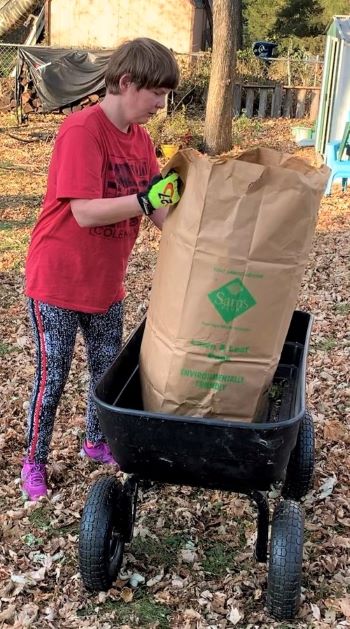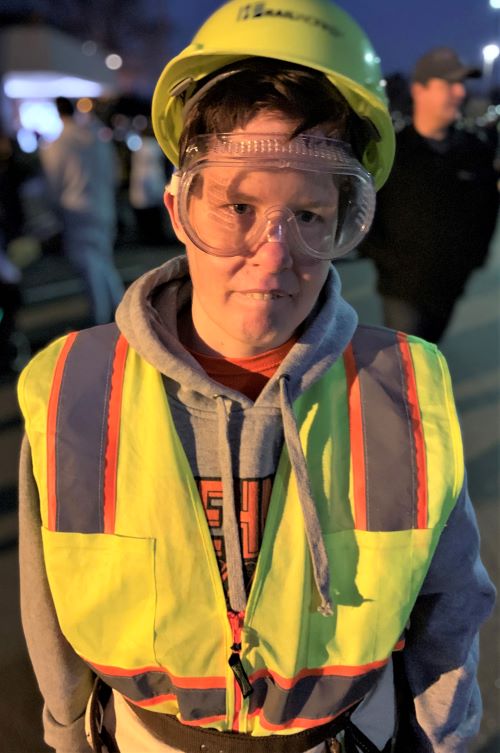Quarantines are over for most everyone, except many with developmental disabilities
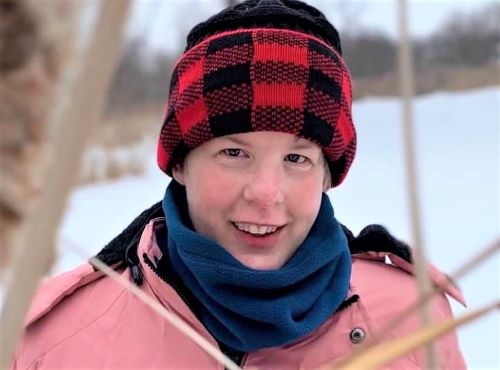
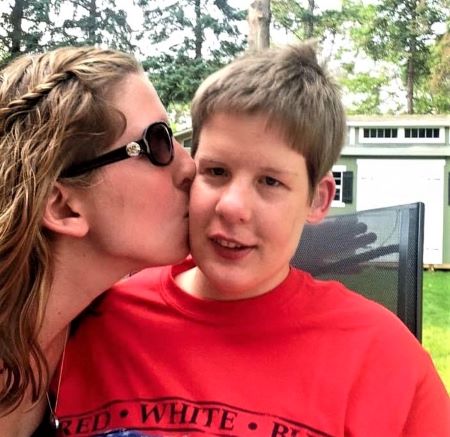
It’s been almost two years since Chelsea Lucas participated in a Twin Cities day program, as waiting lists exacerbated by COVID-19 and staff shortages have limited her options.
Dependent on others for many facets of life, she has a number of developmental disabilities, is nonverbal and deaf.
“She doesn't get to socialize, she doesn't get to try new things, she doesn't get to do anything that challenges her mind or gives her pride and accomplishment,” said her sister and co-guardian, Nicole Lucas, who maintains close contact. Both are 39-years-old and their mother is the other guardian.
Sisters stick together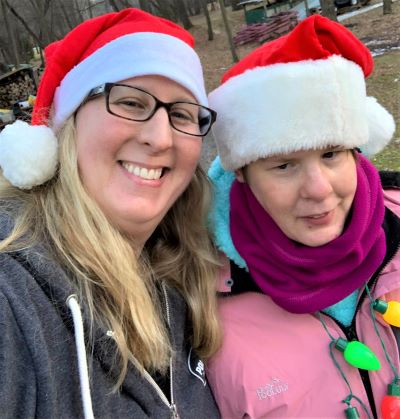
When the COVID-19 quarantines rolled in early in 2020, Chelsea moved from her Brooklyn Park group home to Nicole’s home in Albertville. It was the only way they would be allowed to see each other, and neither could bear to be apart, Nicole explains.
By mid-March of that year, her time had come to a close at her day program, Community Connections Partnership (CCP). It was merging with Opportunity Partners (OP).
Chelsea was added to a waiting list for services with OP. Her wait continues.
Day services, work had many benefits
Served by CCP for 15 years, she had started doing piecework in Brooklyn Park. When that option was removed, there were recreation activities, her sister said. “Chelsea very much missed the working component of her day,” said Nicole.
There were games, crafts, music, and, most importantly, friendships, her sister explains. A friend at the day program invited her to a Halloween party. “In my whole life, that is the first and only time I ever remember Chelsea being invited to something I didn’t arrange.”
While at CCP, Chelsea had a routine. She packed her lunch and went to what the family called “work.” Nicole said this gave her purpose, something to attend to, get up and get ready for each day.
Chelsea’s passion in life is to help people, her sister said. “And her passion has been stripped away from her for two years.”
Services limited, inactivity takes its toll
She started back a few days a week at her group home in January 2021. Time was spent watching television. In May, she needed a significant surgery and recovered at Nicole’s home through August.
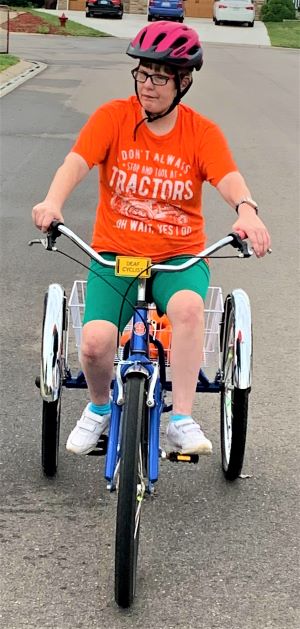 Like the day programs, her group home is short-staffed, said Nicole. Not all are allowed to drive the individuals served there, which means there are few opportunities to get out in the community.
Like the day programs, her group home is short-staffed, said Nicole. Not all are allowed to drive the individuals served there, which means there are few opportunities to get out in the community.
For day services, there were talks and a virtual tour of Opportunity Partners in the summer of 2021. By September, one more staff member was needed to serve Chelsea, but two staff left in October and the door for day services remained closed, her sister explained.
Opportunity Partners alone has waiting list of 400
“Our hearts are heavy knowing that many people – over 400 alone on Opportunity Partners’ waiting list - are still waiting for these vital services,” said Bill Schultz, President and CEO of Opportunity Partners.
“Workforce shortages have created a crisis, and although we are working every day to expand our workforce by increasing wages and benefits, more needs to be done. We continue to work with our regulators and legislators to find solutions to the staffing crisis because of the toll it is taking on those in our community who go unsupported.”
A recent member survey by the Minnesota Organization for Habilitation and Rehabilitation (MOHR) reported more than 3,500 Minnesotans with disabilities on waiting lists for day and employment services. The organization said its core belief is that Minnesotans with disabilities across the entire state should have access to high-quality employment supports and other day enrichment services.
Inactivity has physical impacts as well
Chelsea is emotionally and physically struggling with being home-bound, said Nicole. A lack of movement has led to weight gain and likely contributed to a blood clot in her leg.
If Chelsea could choose, she wants to work, whether in a day services facility or in the community with a job coach, one who is fluent in sign language. They are rare, said her sister.
“She and I would take any services she could get, even if they weren’t every day,” she said. “We are desperate for any return to a purpose in her life.”
Changing as a person, behavior challenges, undoing her progress
Chelsea tries to sleep her days away, but has struggled with more aggressive behaviors, explains her sister. “Sometimes I don’t recognize her.” Her bubbly and outgoing sister who was always active has changed. Sitting for hours on end and getting her up to do anything requires "bribery,” which doesn’t always work, Nicole said.
Behaviors where Chelsea might harm herself are returning, things her sister has not seen in more than a decade. Her medications were changed, but being a person of routine, television has replaced other positive and active things that were once there.
“Change is extremely difficult for Chelsea and because of her deafness and being nonverbal, it takes her a long time to trust and get along with new people,” said Nicole.
She picks up her sister each weekend to go the gym for workouts and other activities. “Two weeks ago, we went to our first movie in two years. You would have thought she just won the lottery from how she reacted when we pulled up to the theater.”
As COVID-19 has subsided, family members of people with disabilities are traveling, going to work, or back to school, but Nicole said the situation for some adults with developmental disabilities is no different than in was in 2020.
